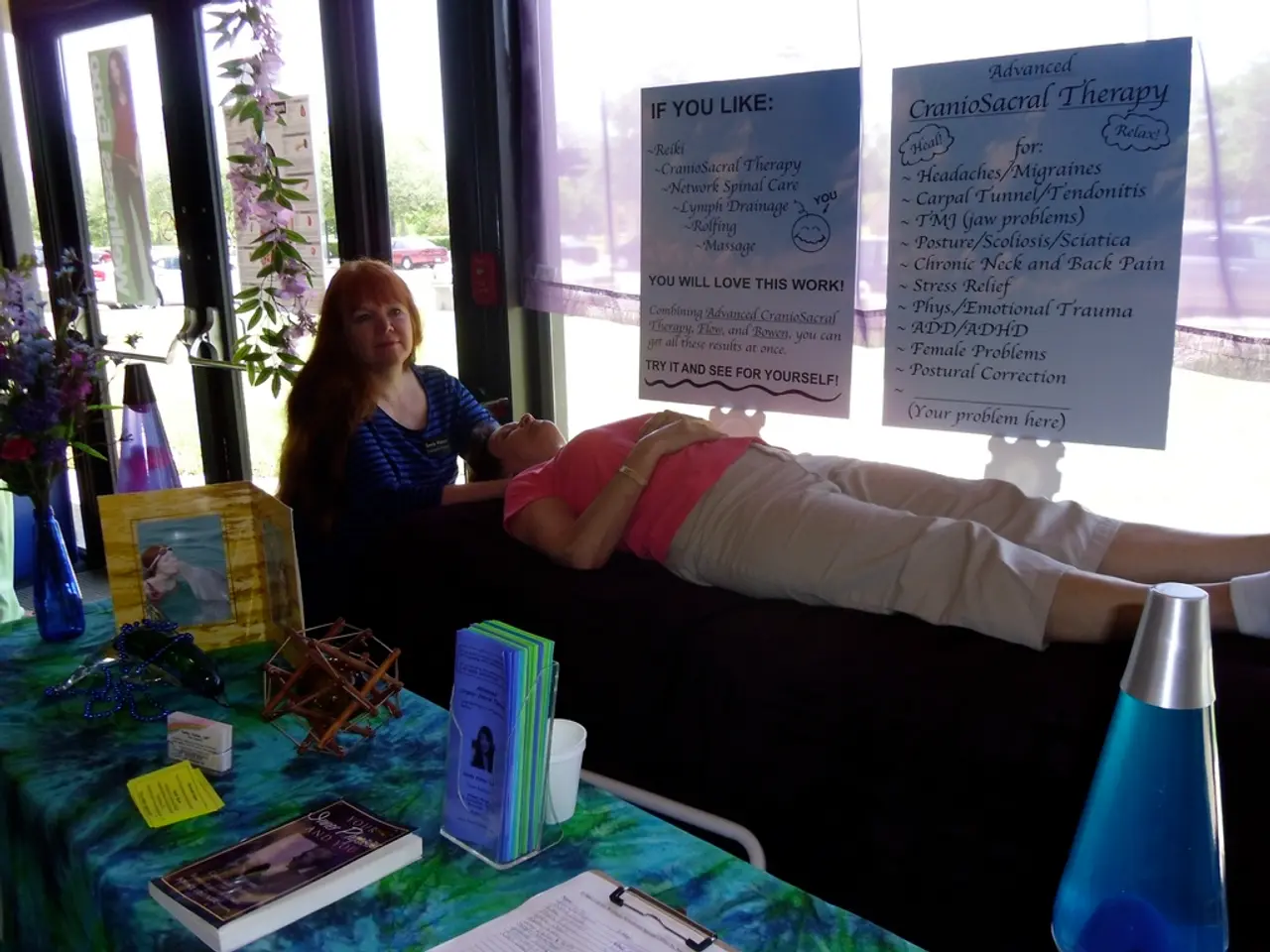Symptoms, causes, treatments, and further information on work-related depression
Common Causes, Symptoms, and Treatment Options for Work-Related Depression
Work-related depression, while not an official diagnosis, is a term used to describe major depressive disorder or other forms of depression that present at work. This condition can be a significant challenge for individuals, affecting not only their mental health but also their work performance.
Causes
Chronic exposure to stressful work environments, long hours, and high emotional demands can lead to work-related depression and burnout. Depression may also be linked to executive dysfunction, impairing cognitive functions such as working memory, decision-making, and planning. Psychological factors like low self-esteem and anxiety can drive compulsive overworking or work addiction, which itself can lead to depression. Emotional trauma or unresolved personal problems may exacerbate symptoms and contribute to executive dysfunction and depression. Certain occupations with high stress, emotional demands, and workload are more prone to causing occupational depression.
Symptoms
Work-related depression can manifest in various ways. Physical symptoms may include sleep disturbances, persistent fatigue, muscle pain, headaches, digestive problems, and heart and breathing irregularities. Emotional and behavioral symptoms can include feelings of severe fatigue, irritability, increased anxiety, procrastination, difficulty focusing, and negative mood. Cognitive difficulties, such as problems with memory, decision-making, impulse control, and planning, may also be present.
Treatment Options
Early recognition of symptoms and a multi-faceted treatment approach are vital to managing work-related depression effectively. Seeking professional mental health care, such as counseling or therapy, is critical, especially cognitive behavioral therapy (CBT) or other evidence-based treatments tailored to depression and workplace stress. Medical intervention, including the prescription of antidepressants, may be necessary depending on the severity of the depression.
Workplace adjustments, such as reducing workload, managing job demands and expectations, and improving work-life balance, can also be beneficial. Lifestyle changes, including improving sleep hygiene, nutrition, exercise, and stress management techniques, can help manage symptoms. Addressing work addiction or anxiety through therapy focused on managing compulsive behaviors, thought patterns, and underlying anxieties can be essential. In some cases, long-term disability benefits and legal advice may be necessary for individuals unable to continue working during recovery.
It's important to note that if a person is in crisis and considering suicide or self-harm, they can call or text the 988 Lifeline, text HOME to the Crisis Text Line, or find a helpline in their country with Befrienders Worldwide.
Working long hours, including over weekends, can have a significant impact on a person's mental health. A 2019 study found that women who worked 55 or more hours per week had a higher number of depression symptoms, and people who worked 60 or more hours per week had the highest prevalence of poor mental health compared with those who worked 40 hours per week or less.
In conclusion, understanding the causes, symptoms, and treatment options for work-related depression is crucial for early intervention and effective management. If you notice symptoms of depression at work or other times during the day, consider speaking with a healthcare professional for support and treatment.
Read also:
- Eight strategies for promoting restful slumber in individuals with hypertrophic cardiomyopathy
- Exploring the Strength of Minimally Digestible Diets: A Roadmap to Gastrointestinal Healing
- Secondhand Smoke: Understanding its Nature, Impact on Health, and Additional Facts
- Could a Secret Heart Rhythm Device Infection Be Causing Your Illness?





